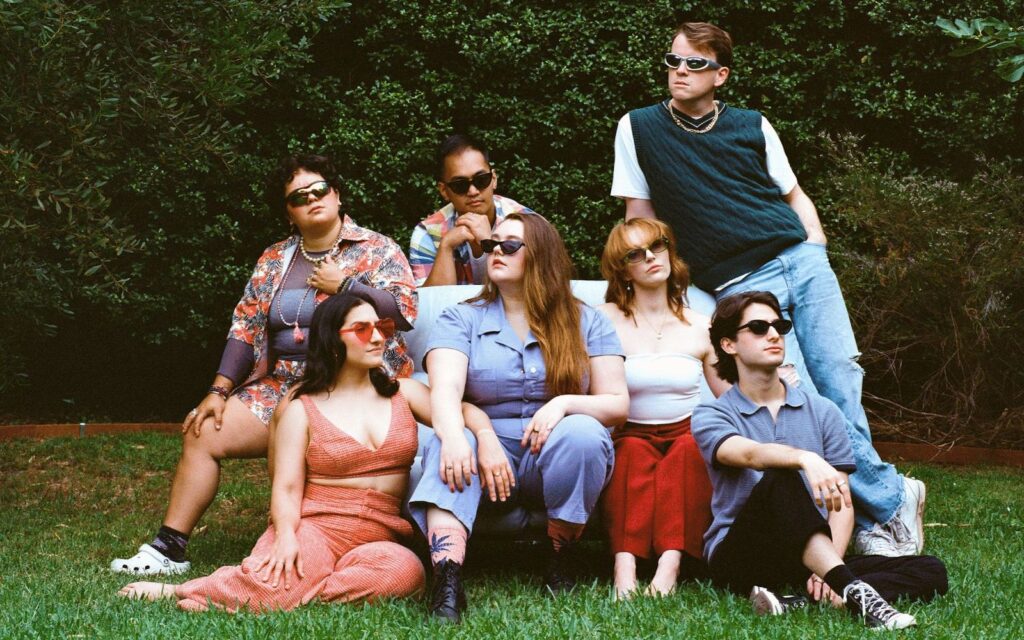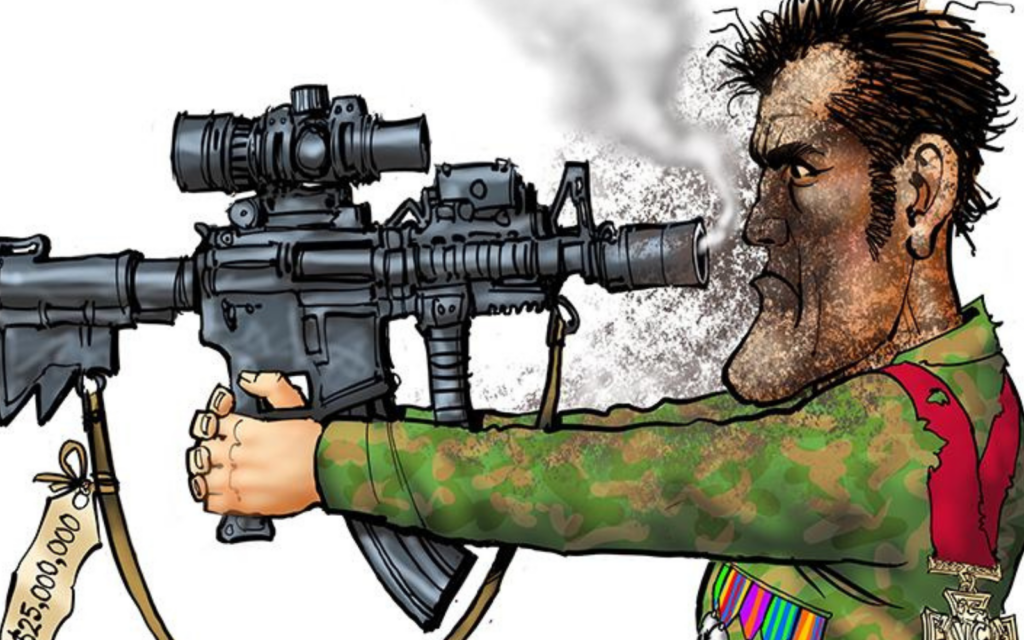Parry has been making short films since leaving high school a few years ago, but Murder Mouth is the first fully funded film she has made. A 14-minute documentary, Murder Mouth is a personal exploration of what it is like to actually kill your own food.
“People who grow up in the country are more connected with where their food comes from,” Parry elaborates about the genesis of her project. “But I grew up in the suburbs, and I’d never seen anyone slaughter the meat that I ate, let alone done it myself. I felt like maybe I was missing out on something. I felt I should go through that experience, and discover whether killing the meat that I ate would change how I felt about my food. So that was the main reason why I started on the film. I didn’t know what I would discover. I thought it would be very interesting to find out, not only for myself but for other people as well. And I made it a documentary because everyone who I spoke to was fascinated by the topic.”
Food affects so many parts of our lives – our health, what people eat to make them live longer, our ethics towards animals, and our ethics towards the environment. There are also a lot of religious and spiritual, cultural and family ties as well.
“Originally I had all these different themes that I wanted to explore because they are so closely connected to what we eat,” Parry elaborates. “But in the end, with a short film you had to have one clear story. That was about the personal and emotional story that I went through as I really learned what it was like to kill your own food. That just meant that a lot of the more academic or philosophical themes regarding the environment and health and spirituality had to become implicit or suggested within my emotional story.
“I was completely naïve when I first started,” she admits, “so I contacted the RSPCA, to discover how people slaughter animals. And then I tried to find people who kill their own meat.”
Parry’s research for this film included talking to the RSCPA, on-line searches, visiting libraries, Farmer’s Markets and talking to people who worked in abattoirs. Parry also discovered that a lot of farmers didn’t seem to want to or like the idea of killing their own animals. Due to regulations and health procedures you can’t sell meat unless it’s been killed in an abattoir.
In the name of veracity, Parry even underwent the experience of killing a chicken with her great grandmother, which didn’t quite go exactly as planned. Parry admits that she wasn’t psychologically prepared. “When you catch a fish it’s different because you reel it in and its already started to die, and its passive. But with a chicken it wasn’t going to die unless I killed it. I couldn’t comprehend that just dropping my hand would end the life of a chicken. I was having trouble coming to terms with that! I’d never killed something before. You’ve got to be prepared to do it quickly and cleanly. And that was my first attempt and it was less than 100% successful.”
Given the nature of her film, Parry also found it difficult to assemble a crew to follow her on her journey. “We did have a bit of trouble finding people,” she confesses. “I had a producer and a cameraperson who said that they preferred not to be involved in a film where they had to see animals killed for food. So we had to find people who were interested in the topic. And even though we got a crew who were keen to go on this journey I don’t think any of them really expected how confronting it would be because they were right there and had to see it all happen. What the crew went through was probably just as interesting, if only we had someone to record that, because it’s a full-on experience.”
The response to Murder Mouth has been mixed so far. “There’s been some interesting responses,” Parry says. “I find it fascinating to hear people’s opinions because everyone has a slightly nuanced opinion and a different story to tell on this topic.”
Parry admits to knowing three people who turned vegetarian after watching a screening. And there was a complaint lodged after the first viewing of the film. A woman in the audience, who had been involved in the animal liberation movement for something like 15 years, firmly believed that killing animals was wrong. She couldn’t appreciate the film because an animal died to make the meals that were eaten. Parry was reported to the RSPCA, which investigated. Although the director was subsequently cleared, the experience left a bitter taste.







